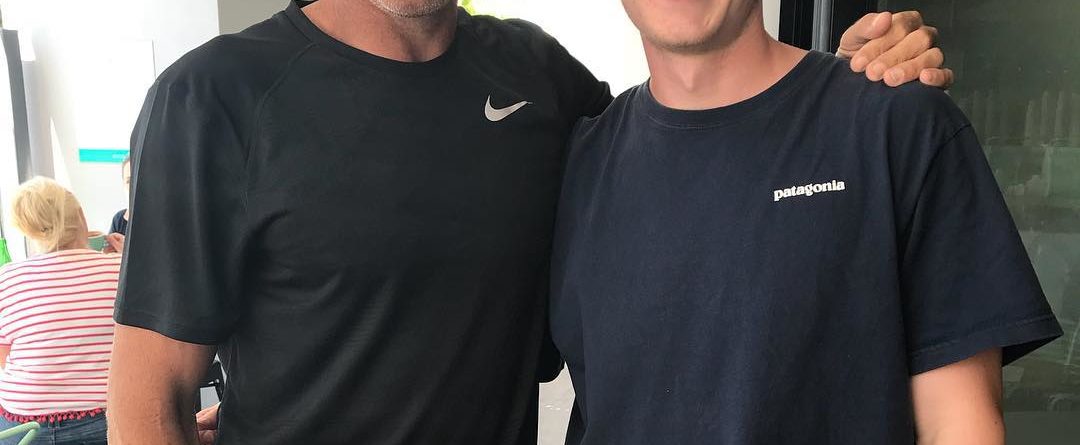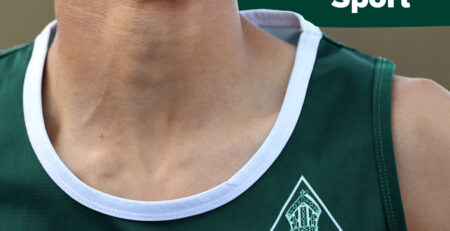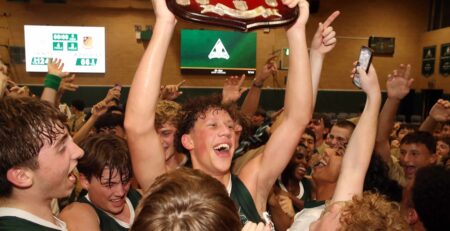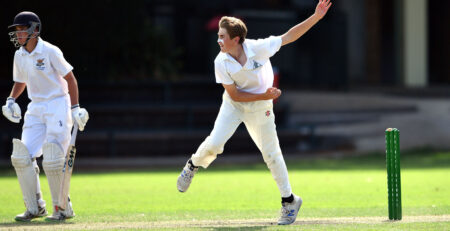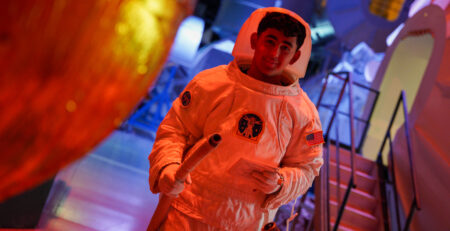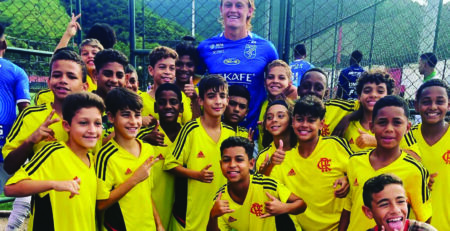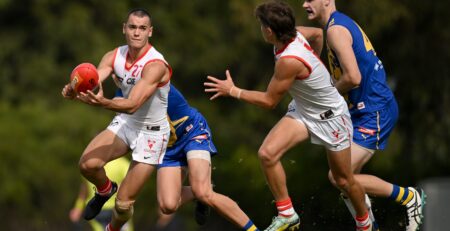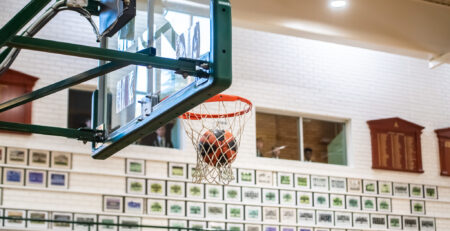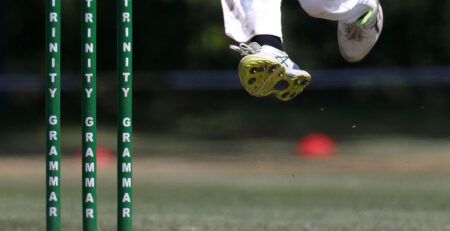Murphy/Browning Olympic preview
It’s all about balance: Trinity Olympians
Few athletes make it all the way to the Olympic 100 metres track under the tutelage of their very first coach.
Rohan Browning is about to do just that in Tokyo.
Admittedly, he’s the product of a very special coach – Trinity’s Andrew Murphy, himself a three-time Olympic triple jumper, who was pleasantly “shocked” to receive an invite from the Australian Olympic Committee to attend the Tokyo Games despite strict pandemic cutbacks to coaches and support staff.

The two have stuck together long since Rohan’s school days ended in 2015.
The former School Vice-Captain is one of three old Trinitarians competing in Tokyo, along with 1500m runner Oliver Hoare and diver Sam Fricker.
He remains a member of the Trinity Athletics Club, training for this year’s delayed Tokyo Games under the mentorship of Mr Murphy, the School’s Director of Track and Field, the man who first spotted his speed on the rugby field and turned him from “a 14-year-old boy into an elite athlete”.
Just as he was helped by old boy club members, Rohan has since helped bring on Trinity’s current schoolboy stars, who amassed an astonishing 11 medals – five of them gold – in under-age events at April’s Australian titles.
The success of the Browning-Murphy partnership – also confirmed with an open 100m gold medal at the national championships in Sydney – underlines Trinity’s reputation as Australia’s premier track and field school.
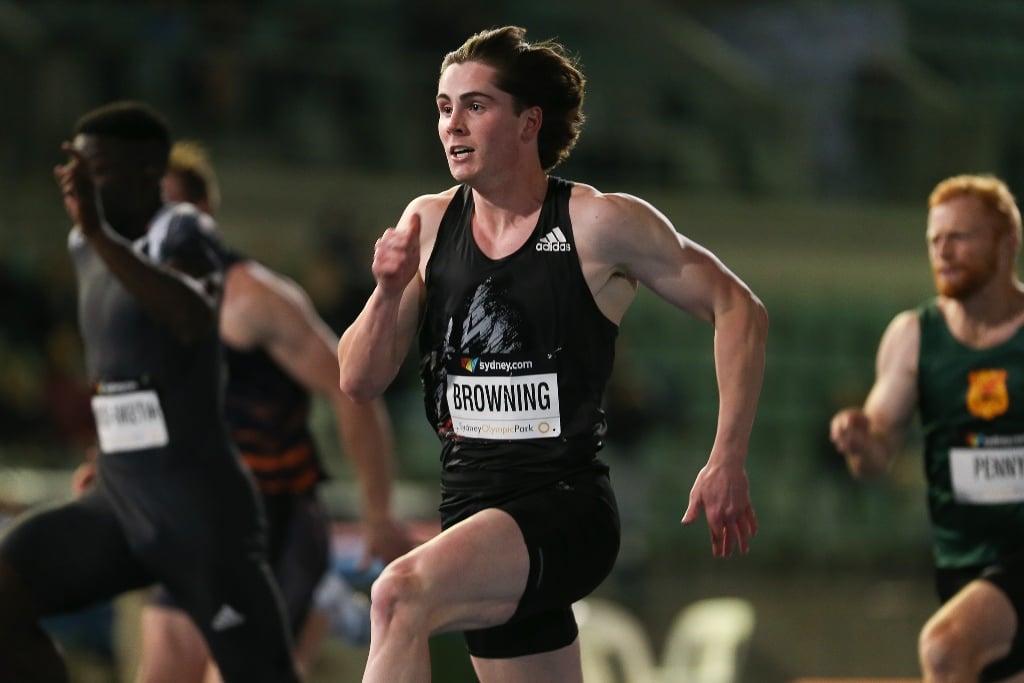
Rohan Browning will become the first Australian to compete in the Olympic individual 100m since the 2004 Athens Games, which by a quirk of fate was his coach’s last.
The 23-year-old is the first Australian sprinter to run 10.05s and gain automatic Olympic selection (the previous qualifying standard was 10.10s or higher).
Surprisingly, perhaps, both runner and coach believe there’s much more to life than athletics alone.
A balanced lifestyle is the key – that’s the core tenet of their association, and one that reflects the School’s charter to nurture mind, body and spirit.
Rohan was never pressured to perform, and his training schedule until recently was, by world standards, fairly light.
“All of our programs are non-compulsory,” said Mr Murphy.
“It’s up to the boys. If they turn up, it’s because they want to be there, not because they have to. They take ownership of it, and I’m a big believer in that.
“One session a week is better than none. “It’s like growing a plant – you put a seed in the ground.
“Trinity has so much on offer – in sport, academically and in non-curricular activities – that we have to monitor our athletes’ workloads, both external and internal.
“Rohan had a relatively low training load. It’s only in the past 18 months that he has had what I would call an elite training program.
“I never pushed him. I say to all of our athletes, “We’re playing the long game, not the short game’.”
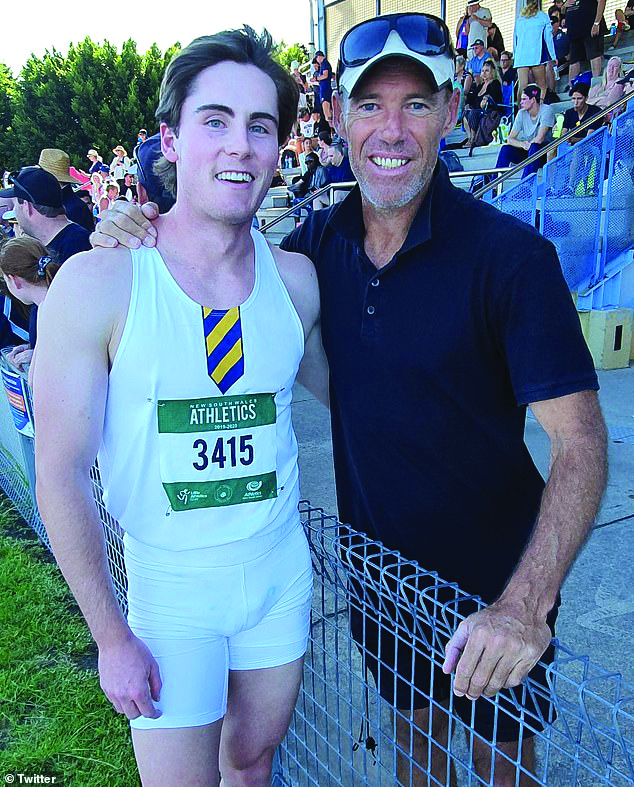
Rohan described himself as “a blank canvas” when he came to Trinity in Year 9.
“I hadn’t done much track and field at all, I hadn’t trained for it, I didn’t even know I had an interest in it,” he said.
“Mr Murphy and all the staff moulded me into what I am today.
“Mr Murphy saw something in me, tapped me on the shoulder and got me involved. I could train when I wanted to, no pressure.
“He got me as a 14-year-old boy and turned me into an elite athlete.
“I don’t know of any other school in the country where that could be facilitated.”
He fondly remembers finishing second on debut at the Combined Associated Schools (CAS) titles, recalling “all the support, all the boys behind you – something I’ve never had even at a home Commonwealth Games”.
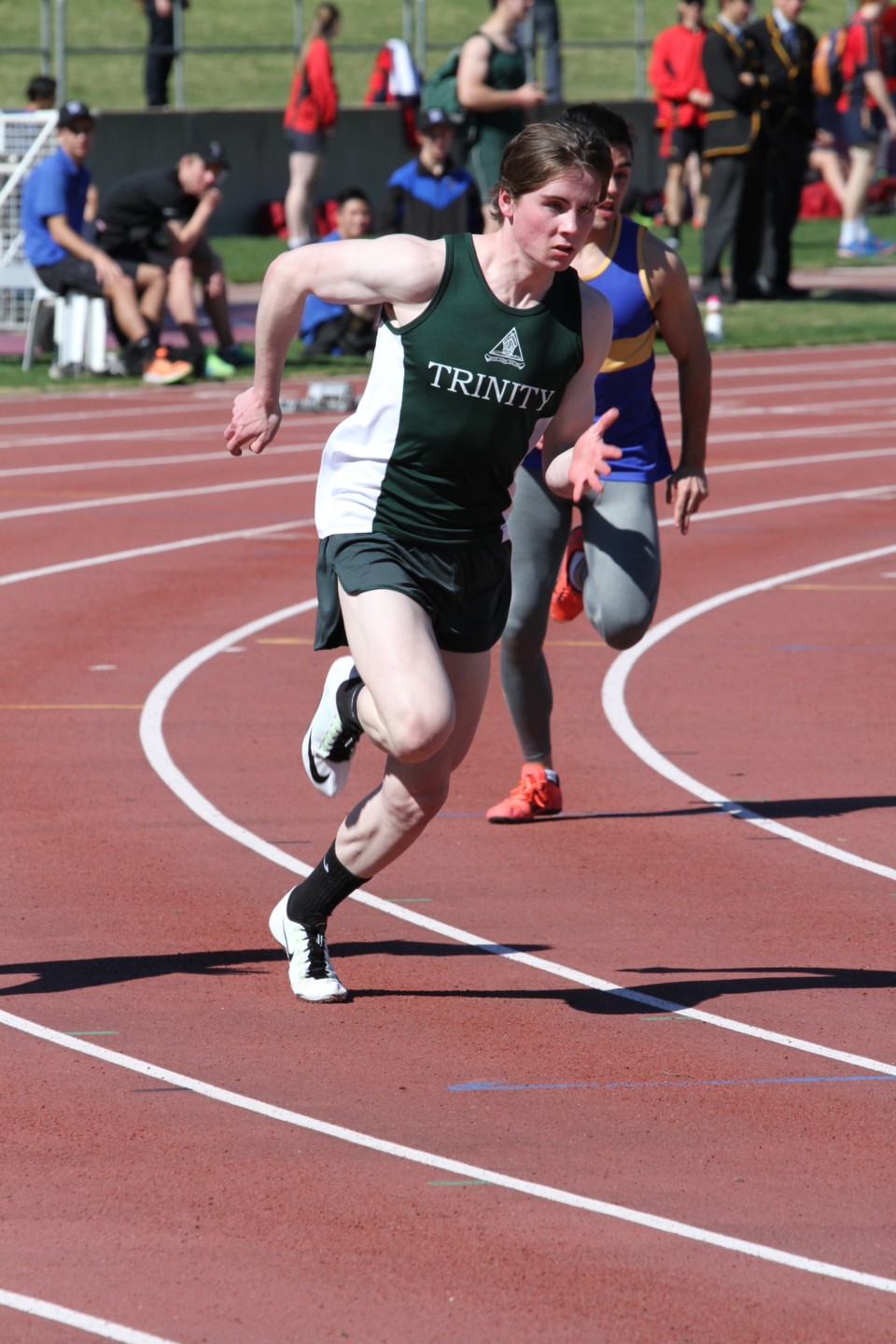
Mr Murphy said Trinity schoolboy athletes benefitted from being exposed to old boy club members, not only increasing their maturity and professionalism but helping them academically, as was the case with his own son, triple jumper and national silver medalist Connor Murphy.
He said Rohan and Connor (class of 2019), the first of four Trinitarians from the Murphy family, fed off each other in many ways.
Both achieved ATAR scores of 99-plus in the International Baccalaureat (IB), and were typical of athletes inspiring each other to greater heights.
“Results don’t lie. We are definitely the leading track and field school in Australia currently. We have dominated the landscape,” he said.
“The most important thing for me is finding quality coaches and retaining them.
“They provide consistency for the boys, who are comfortable knowing what’s going on. Structure is everything.”
Trinity employs specialist coaches in javelin, shot, discus, hurdles and high jump, with Mr Murphy taking care of sprints and horizontal jumps.
“I think the school is fantastic, not just in track and field but in co-curricular subjects, too, and academically the result speaks for itself,” he said.
“The first and foremost thing is a balanced lifestyle.
“I spent 20 years competing at the highest level, and the times I was most successful were when I was also doing other things like studying and working.
“You’ve got to find the sweet spot. You have to breathe, and have goals outside the track. You’ve got to have other passions.”
Rohan, who is studying law at Sydney University, recalls “keeling over in pain” from the 200m repeats Mr Murphy drilled into training.
But he added: “I think it was those sessions early on that really set me up for the career I’ve had.
“They taught me a lot about myself, where the body can go, where you can take it, where you can push it.”
He never missed a training session, even during final year exams.
“It actually helped me academically. It enabled me to get away from it all, to refresh, to do something different.
“It’s so valuable to have a mentor who has been to three Olympics and who is relaxed, someone who I can talk to about anything. It’s a rare and special thing.”
He advised current hopefuls to maintain balance – “Be patient; it doesn’t happen overnight” – and to have commitment.
“I never went to Schoolies week, I sacrificed family holidays to train,” he said.
“I ask myself, ‘Can I be a world class contender?’ The day I stop believing that, I’ll walk away and never look back.”
Head Master Tim Bowden urged students to look to the example provided by the old Trinitarians.
“Rohan took up sprinting in Year 9 when it was discovered he had some aptitude for it.
“You have access to people of national championship and world competition level around you.
“I trust you will make the most of those opportunities.”
Rohan, who has worn the green and white of Trinity many times, and the green and gold of Australia, said: “I’d like to think I look good in green.
“The spectre of the Olympics is massive. “It’s the reason I get out of bed every morning.”
Trinity’s previous Olympians
| William Tully (class of 1948) | Diving | 1956 Melbourne |
| Lars Kleppich (1985) | Windsurfing | 1992 Barcelona (bronze medal), 2000 Sydney, 2004 Athens |
| Wayne Shillington (1985) | Swimming (1500m) | 1984 Los Angeles (finalist) |
| Graeme Banks (1986) | Diving | 1988 Seoul |
| Luke Adams (1994) | Track and field (walker) | 2004 Athens, 2008 Beijing, 2012 London |
| Steven Barnett (1997) | Diving | 2004 Athens (bronze medal) |
| Joel Milburn (2004) | Track and field (400m) | 2008 Beijing, 2012 London |

